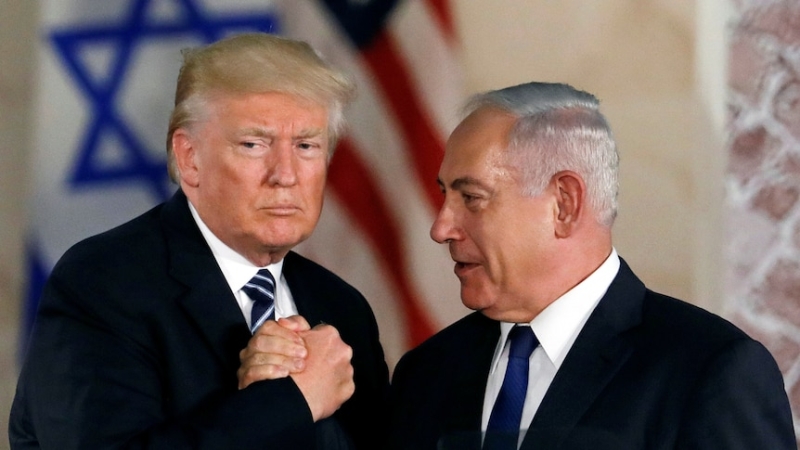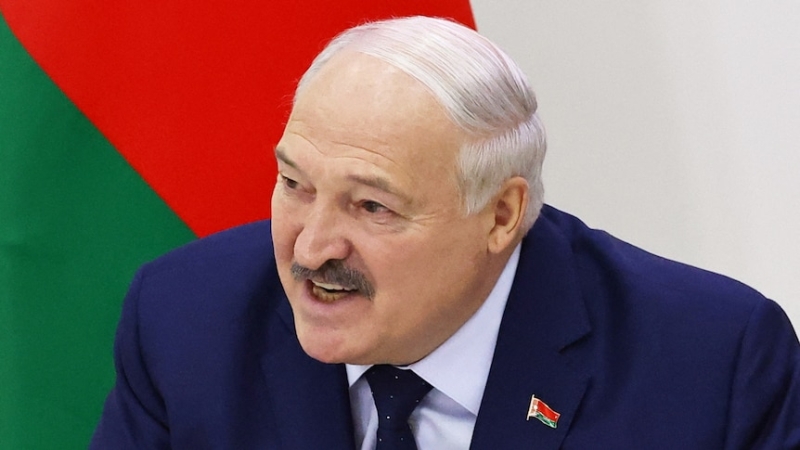Signs are that Donald Trump and Benjamin Netanyahu will work together to overturn the goal of a two-state solution. (Reuters: Ronen Zvulun)
Over the next four years, all indications are that Donald Trump and Benjamin Netanyahu may extinguish any possibility of a two-state solution in the Middle East.
Many of Israel's far-right supporters in Australia, the US and elsewhere will celebrate this — Israel would effectively annex the Occupied Palestinian Territories, giving Israel more land and achieving the long-held aspiration of "Eretz Israel," or "Greater Israel."
But celebration would be misplaced. Any permanent land grab by Israel will come at the price of permanent conflict.
The Palestinian population in the West Bank, Gaza and East Jerusalem is growing and should it become official that they have no hope of any sovereign state or the same civil rights as the Jews who they walk by in the street the situation will become even more dangerous than it is at the moment.
As Ami Ayalon a former head of Israel's security service Shin Bet told me last year, Israelis will not have security while Palestinians have no hope. And that's from a man who has run the country's security service and knows the reality of Israelis and Palestinians better than most.
Inside Israel's war: We challenge its powerful voices on why Netanyahu won't stop
Photo shows Composite image of four men and one woman. All are looking at the camera with neutral expressions.
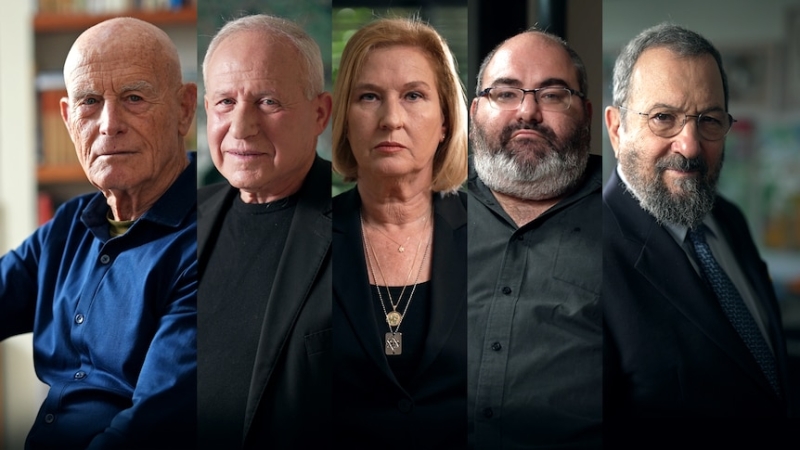
Since the United Nations' historic vote in 1947 — which divided what had been the British mandate into the State of Israel alongside Palestine — the international community has pushed for the two-state solution to the age-old Israeli-Arab conflict. Palestinian Arabs rejected the partition plan which they believed unfairly divided the land.
The two-state solution remains the only viable political solution to this conflict. Many on either side want total victory over the other — that is not a sustainable solution.
Large numbers of the 500,000 or so Jewish settlers who have moved into the Palestinian Territories in recent decades are there for cheap land. The Hebrew teacher I had when I lived for six years in Israel was a case in point — he bought a three-bedroom apartment in a Jewish settlement on Palestinian land, Har Homa, for the same price as it would have cost him for a one or two bedroom apartment in Jerusalem or Tel Aviv. "I'm getting an extra bedroom!" he told me with delight.
An apartment or house is so much cheaper when the land is free. Israel has taken more and more land in recent decades and not had to pay for any of it — in many case settlers, who are given weapons by the Israeli army, have simply laid claim to land they have wanted and then begun building.
Those who founded the state of Israel in 1948 agreed that Israel would be established in return for an independent state next to them, which would be Palestine.
That was the deal. It was driven by the international community with people such as Australia's Doc Evatt leading the push.
Now Jewish settlers, encouraged by successive Israeli governments and the Israeli army, are seizing more and more of the Palestinian Territories which certainly makes a two-state solution more difficult.
But it does not make it impossible. While the possibility of a two states is certainly on life-support, those who want to avoid a forever war continue to hold onto the hope of such a notion.
Can the two-state solution still work?
Any chance of achieving a two-state solution would require carrot and stick.
The carrot could be for the US, European Union and others to contribute to a fund from which each settler family in the West Bank to be offered a significant amount of money — perhaps $US1 million to move back to Israel. Given how much the US pays to fund Israel's military, it would be a relatively low cost — and a good investment.
What are the one-state and two-state solutions?
Photo shows Benjamin Netanyahu stands in front of two Israeli flags.
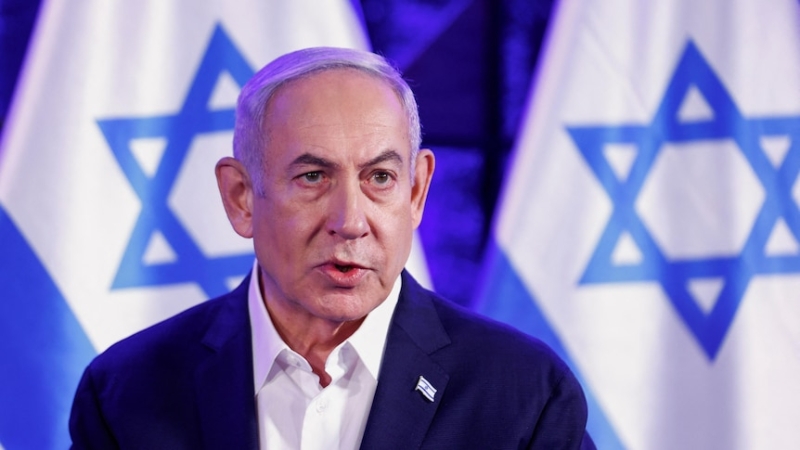
Many of the Jewish settlers currently in the West Bank are likely to accept, as they are in the West Bank for economic reasons.
Then the stick: the hard-line religious ideologues who refused to leave could be given the option to remain and become Palestinian citizens — an option they would be unlikely to take — or be physically dragged out, as Israel did when it pulled its settlements from Gaza in 2005.
The alternative to forcing this evacuation is a future of perennial violence, a taste of which the world saw when Hamas stormed across the Israeli border on October 7.
Israel is one of the last countries on earth that runs an occupation over another people — as the French, Syrians and others found out, maintaining occupations is expensive in terms of lives and resources.
No conflict is unsolvable. The Northern Ireland conflict was seen by many as intractable. The Irish Republican Army was designated a terrorist organisation — civilians in London were being blown up by IRA bombs while Irish civilians were being caught in the middle of violence between the IRA and the British army. But both sides were prepared to make difficult compromises, and fewer civilians in London and Belfast have been killed as a result.
South African apartheid was also seen as unsolvable. Like the IRA, the African National Congress was designated by many a terrorist organisation, with Nelson Mandela being the leader of that terrorist organisation. Again, both sides had to make compromises.
While Mandela is widely acknowledged as the key factor in ending apartheid and bringing about democracy, he could not have done it had the whites of South Africa — particularly the Afrikaners led by FW de Klerk — not also been prepared to make compromises.
A good guide to what both Trump and Netanyahu will do is what they have already done and who they have appointed.
One of Trump's first decisions was to lift sanctions on several of the most violent Jewish settlers in the West Bank. The Biden administration had placed such sanctions on several particularly violent Jewish settlers in the West Bank.
Trump's move has been seen here in Israel as essentially saying that these and other armed and violent settlers can commit any atrocities against Palestinians with impunity and without interference from the US. Rarely are Jewish settlers brought to justice by Israel for acts of violence against Palestinians.
Trump's early appointments are also a strong indication that a Palestinian state is very much an endangered species.
He has chosen former Arkansas governor and Fox News host Mike Huckabee as new US Ambassador to Israel. According to The Times of Israel, Huckabee has said that Israel's claim to the West Bank is "stronger than American ties to Manhattan" and he even laid bricks in 2018 as ground was broken on a new housing complex in the settlement of Efrat.
The website reported that Huckabee had said that "of course" annexation of the West Bank was a possibility during Trump's second term.
The latest suggestion by Trump has only heightened the view that the two-state solution is endangered: that Gaza is so devastated that there needs to be a “clean out” and that as many as 1.5 million people in Gaza move to Jordan or Egypt.
Israel's powerful new politicians
Trump's nominee to be US ambassador to the UN, Elise Stefanik, backed the position of two key leaders of Israel's far-right, Bezalel Smotrich and Itamar Ben-Gvir.
During her confirmation hearing for the position, Stefanik said Israel had a biblical right to the whole of the West Bank. That's the view of the far right in Israel and many of its lobby groups around the world — that Israel has a "biblical right" to the West Bank, which they refer to as Judea and Samaria, and that that right overrides the UN's vote that led to the creation of Israel.

Far-right Israeli lawmakers Itamar Ben Gvir, center, and Bezalel Smotrich, right, in Israel's parliament the Knesset. (AP Photo: Maya Alleruzzo)
That viewpoint dominates the current Israeli government. Smotrich, the finance minister, is also leader of the far-right Religious Zionism Party. Israeli media recently reported that Smotrich was pushing to end the ceasefire in Gaza after the first stage of the hostage deal — after 33 hostages have been released — and resume the war. This would leave 58 hostages still in Gaza while Israeli bombing resumes.
Smotrich has emerged as one of the most powerful politicians in Israel — perhaps second in power behind Netanyahu. His Religious Zionism Party is keeping Netanyahu in power.
Smotrich, like Netanyahu and possibly Trump, would be keen to extinguish any notion of a two-state solution.
In fact, Smotrich has even questioned the existence of Palestinians. He has described them as "an invention" from last century.
Smotrich is an open supporter of "Greater Israel", as is Netanyahu. When Netanyahu speaks at the UN, he does so in front of a map that is without the West Bank or Gaza. That is, his map has Israel from the Jordan River to the sea.
It's noteworthy that while extremists on the Palestinian side sometimes chant "from the river to the sea" as wanting a state which expunges Israel, so do Smotrich and Netanyahu have a "river to the sea" aspiration.
In fact, Smotrich even stands in front of a map which includes Jordan as part of "Greater Israel".
In 2021, during a debate in the Israeli parliament, the Knesset, Smotrich told Arab members that they were in Israel by mistake. Referring to the founder of Israel, David Ben-Gurion, Smotrich told them: "You're here by mistake, it's a mistake that Ben-Gurion didn't finish the job and didn't throw you out in 1948."
A rise in settler violence
The violent culture of many Jewish settlers has recently been highlighted by a man who knows as much about West Bank security as anybody — the IDF's most senior officer in the West Bank, Major General Yehuda Fuchs.
In a speech last July to mark his retirement from the position as head of the IDF's central command, Major General Fuchs said since October 7 crime by settlers had "reared its head under the cover of war and has led to revenge and sowed calamity and fear in Palestinians residents who do not pose any threat."
Israeli settlers know they have virtual immunity
Photo shows U.S. President Joe Biden pauses during a meeting with Israeli Prime Minister Benjamin Netanyahu.
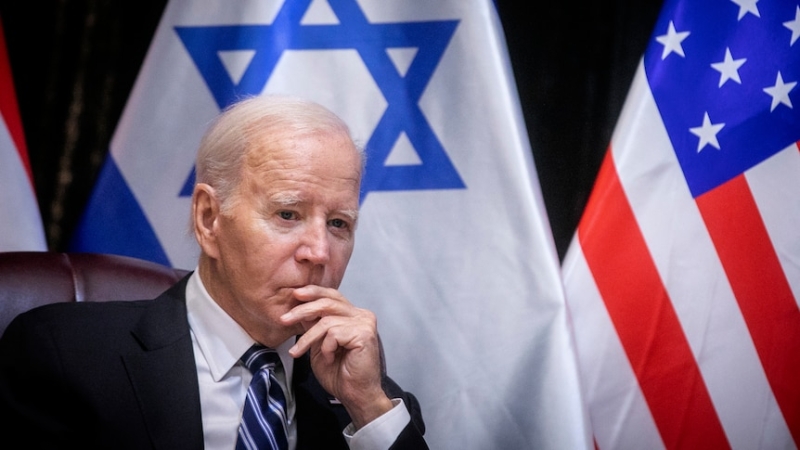
"To my dismay, the local leadership and the spiritual leadership for the most part did not see the threat as we did. It is intimidated and has not found the strength to come out openly and act in accordance with the values of Judaism," he said.
In July, Haaretz newspaper reported that Smotrich was part of a takeover of Israel's administration of the West Bank. "This is manifested in the expansion of settlement areas and the legalisation of illegal outposts, but also in Smotrich's calculated effort to financially strangle the Palestinian Authority in the hopes of bringing about its collapse," the paper reported.
The suggested desire of one of the most powerful members of the Israeli government to see the collapse of the PA fits with an analysis that Netanyahu himself had also wanted to see the collapse of the PA — and to this end tried to boost Hamas in Gaza.
Ami Ayalon, a former head of Israel's domestic intelligence agency Shin Bet, said that before October 7 the Israeli government tried to implement a policy of divide and rule between the more moderate PA in the West Bank and the militant Hamas in Gaza.
"We did everything in order to make sure that Hamas will go on controlling Gaza and Palestinian Authority will control the West Bank, so they will fight each other," Ayalon told Four Corners.
"So what we did with the permission of our prime minister [Netanyahu] is to let Qatar to transfer a huge amount of money in cash, probably more than $US 1.4 billion, and to make sure that they will be able to send people to work in Israel and to achieve or to get intelligence if they need. By doing it, we increased the power of Hamas."
Ayalon described Smotrich and Ben-Gvir as destructive influences on Israeli politics. As someone who ran the country's security service, his description of them is noteworthy: "I see them as terrorists and as Jewish Messianics."
In the same Four Corners episode, Ehud Barak, former Israeli prime minister and the country's most decorated soldier, described Smotrich and Ben-Gvir as "two racist, Messianic guys" who seemed to have considerable leverage over Netanyahu.
The two men, Barak said, wanted "a major religious war between Israel and Islam."
With Trump back in the White House, all power now resides with Benjamin Netanyahu and the US president. With Netanyahu's desire to extinguish any possibility of a Palestinian state, history now waits for Trump to respond.
Will he overturn the views of all recent presidents before him and overturn the goal of a political solution to the Israeli Palestinian conflict which gave the Palestinians sovereignty?
Or will he be unpredictable, as he so often is, and write himself into the history books as the man who pushed for — and achieved — a two-state solution?

